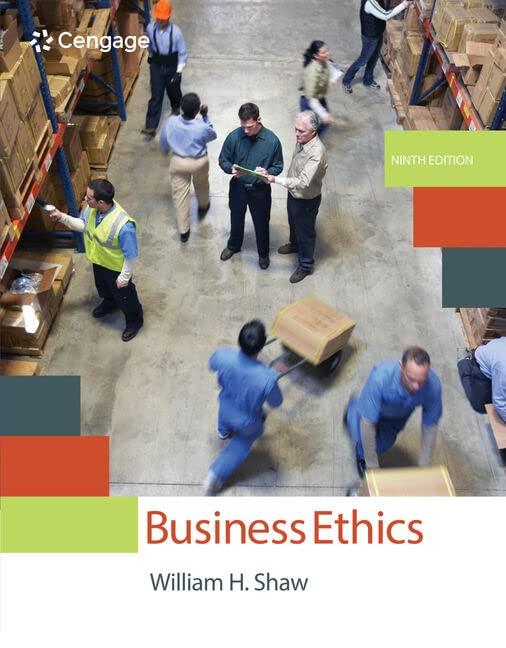SHI TAO IS A THIRTY-SEVEN-YEAR-OLD CHINESE journalist and democracy advocate. Arrested for leaking state secrets in 2005,
Question:
SHI TAO IS A THIRTY-SEVEN-YEAR-OLD CHINESE journalist and democracy advocate. Arrested for leaking state secrets in 2005, he was sentenced to ten years in prison. His crime? Mr. Shi had disclosed that the Communist Party’s propaganda department had ordered tight controls for handling the anniversary of the infamous June 4, 1989, crackdown on demonstrators in Beijing’s Tiananmen Square. A sad story, for sure, but it’s an all too familiar one, given China’s notoriously poor record on human rights. What makes Mr. Shi’s case stand out, however, is the fact that he was arrested and convicted only because the American company Yahoo revealed his identity to Chinese authorities.83 You see, Mr. Shi had posted his information anonymously on a Chinese-language website called Democracy Forum, which is based in New York. Chinese journalists say that Shi’s information, which revealed only routine instructions on how officials were to dampen possible protests, was already widely circulated.
Still, the Chinese government’s elite State Security Bureau wanted to put its hands on the culprit behind the anonymous posting. And for that it needed Yahoo’s help in tracking down the Internet address from which huoyan1989@
yahoo.com.cn had accessed his e-mail. This turned out to be a computer in Mr. Shi’s workplace, Contemporary Business News in Changsha, China.
A few months after Shi’s conviction, the watchdog group Reporters Without Borders revealed the story of Yahoo’s involvement and embroiled the company in a squall of controversy.
After initially declining to comment on the allegation, Yahoo eventually admitted that it had helped Chinese authorities catch Mr. Shi and that it had supplied information...........
Discussion Questions 1. What moral issues does this controversy raise? What obligations should Yahoo have weighed in this situation?
Was the company a “traitor” to its customer, as Liu Xiabo says?
2. In your view, was Yahoo right or wrong to assist Chinese authorities? What would you have done if you were in charge of Yahoo?
3. Is Jerry Yang correct that the company had “no choice”? Assuming that Yahoo was legally required to do what it did, does that justify its conduct morally?
4. Assess the actions of Yahoo and of Microsoft, Google, and Cisco from the point of view of both the narrow and the broader views of corporate responsibility.
What view of corporate responsibility do you think these companies hold? Do you think they see themselves as acting in a morally legitimate and socially responsible way?
5. In light of this case, do you think it makes sense to talk of a corporation like Yahoo as a moral agent, or is it only the people in it who can be properly described as having moral responsibility?
6. Would American companies do more good by refusing to cooperate with Chinese authorities (and risk not being able to do business in China) or by cooperating and working gradually to spread Internet freedom? In general, under what circumstances is it permissible for a company to operate in a repressive country or do business with a dictatorial regime?
7. Assess the pros and cons of a law forbidding American high-tech companies from assisting repressive foreign governments.
Step by Step Answer:






